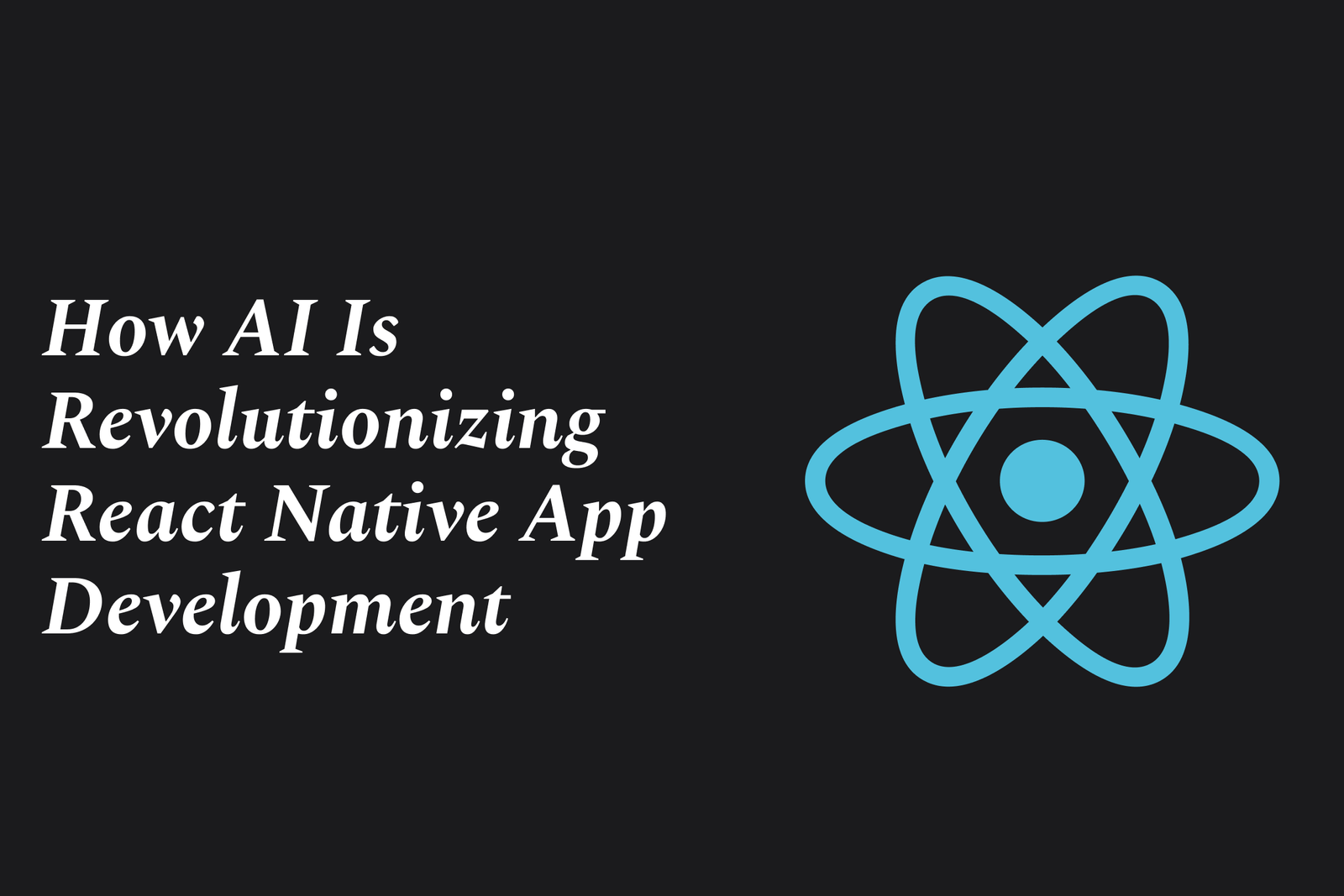How AI is Revolutionizing React Native App Development
AI is revolutionizing React Native app development by automating coding, debugging, and testing, enabling faster iterations and smarter problem-solving. This boosts productivity, accelerates cross-platform deployment, and allows developers to focus more on creativity and user experience.
How AI Is Revolutionizing React Native App Development
1 ) React Native as the Default for Modern App Development
React Native has emerged as the preferred framework for building modern mobile apps, particularly among VC funded startups. Its ability to enable cross platform development with a single codebase that works seamlessly on iOS, Android, and the web significantly reduces development time and complexity.
2 ) Expo: Empowering Faster Development and Iteration
Expo is a platform built on top of React Native that simplifies app development by making iteration cycles lightning fast. Developers can ship updates in seconds rather than hours, creating a positive feedback loop that accelerates product improvements and responsiveness to user feedback.
3 ) Speed of Iteration Over Programming Languages
The core advantage highlighted is that rapid iteration speed outweighs strict preferences for any specific programming language or framework. Being able to develop, test, and release quickly enables startups and teams to get to market faster, which is a more critical competitive edge.
4 ) Cross Platform Development Enhances Startup Agility
Maintaining a single React Native codebase for multiple platforms streamlines engineering efforts and fuels startup agility. This approach reduces overhead and allows smaller teams to build and scale apps effectively without compromising user experience.
5 ) Consistent User Experience Across Devices
React Native facilitates a seamless and consistent user experience across various devices, which today’s users expect. This consistency is crucial for user retention and brand loyalty.
6 ) AI Accelerates Development, Humans Refine Creativity
Artificial Intelligence tools have begun to drastically speed up development by assisting with coding, debugging, and automating routine tasks. However, human creativity, design sensibility, and iterative refinement remain essential to delivering high quality apps.
7 ) Real World Examples and Industry Insights
Industry leaders like Charlie Cheever, CEO of Expo, underscore the impact of these technologies. Examples include how apps like Bluesky were built for multiple platforms rapidly by small teams using React Native. The discussion also touches on topics like monetization differences between React Native and native apps, and why building in React Native from the start is advantageous.
Summary:
The integration of AI with React Native development, facilitated by platforms like Expo, is transforming how mobile apps are built. By enabling rapid iteration, cross platform agility, and consistent user experiences—all accelerated by AI assisted coding—developers can focus on innovation and speed to market. This revolution is reshaping app development, making it faster, smarter, and more efficient.
https://justacademy.in/news-detail/react-native-expo-sdk:-what?s-coming-next?
https://justacademy.in/news-detail/android-app-monetization-strategies-2025
https://justacademy.in/news-detail/most-downloaded-react-native-ui-kits-in-2025
https://justacademy.in/news-detail/react-native-expo-sdk-48-brings-massive-productivity-boosts
https://justacademy.in/news-detail/flutter-for-startups:-quick-mvp-building-guide
Related Posts
Java supports GDPR and data privacy by enabling secure data handling through encryption, controlled access, and precise data management. It allows developers to minimize PII exposure, ensure data confidentiality, and design workflows that comply with data protection regulations effectively.
Java code quality tools have evolved to include advanced static analysis, integrated security checks, and AI-powered code reviews. These updates help developers detect bugs, enforce coding standards, and enhance security, streamlining the development process and improving overall code reliability.
Java remains a cornerstone in big tech companies, evolving with modern features like records, pattern matching, and virtual threads. Its robust ecosystem, enhanced performance, and growing AI integrations keep it vital for both legacy systems and innovative new projects.
Java and CI/CD pipeline optimizations streamline Java application development by automating builds, tests, and deployments. They improve efficiency through parallelization, caching, and secure secrets management, enabling faster feedback loops and more reliable, scalable software delivery.
Java supports modern cryptography standards through its flexible Java Cryptography Architecture (JCA), enabling integration of advanced algorithms like AES, EdDSA, and post-quantum tools. Libraries like Bouncy Castle offer FIPS-certified, hardware-accelerated implementations for secure development.
Java 23 enhances record patterns by enabling concise, direct destructuring of record components within pattern matching, simplifying type checks and data extraction. This improvement boosts code readability and expressiveness by reducing boilerplate in handling immutable data classes.
Java remains a top choice for mobile app backends, powering scalable, secure, and high-performance server-side solutions. Latest trends include cloud-native microservices, reactive programming, and enhanced JVM optimizations, enabling efficient, flexible, and robust mobile backend development.
Java SE 24 and LTS Java SE 21 offer enhanced features and performance, while Apache Spark 4.0.0 introduces Scala 2.13 support and advanced ML and SQL capabilities. Together, they empower developers to build scalable, high-performance data applications with modern tools.
JUnit 5 modernizes Java testing with a modular architecture, improved assertions, and seamless Java 8+ support. Beyond JUnit, tools like Mockito and AssertJ enhance mocking and assertions, creating a powerful, flexible ecosystem for writing clean, efficient Java unit tests.
Java plays a pivotal role in cloud automation tools by providing a robust, platform-independent language used to build scalable automation frameworks like Jenkins and Selenium, enabling efficient CI/CD pipelines, testing, and orchestration across diverse cloud environments.










